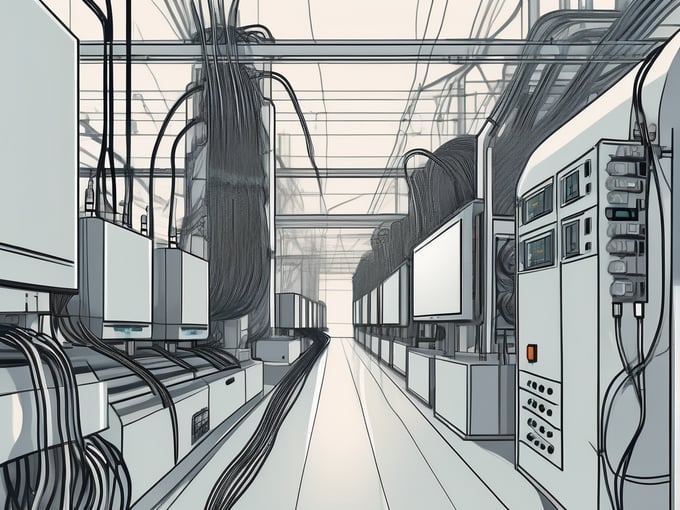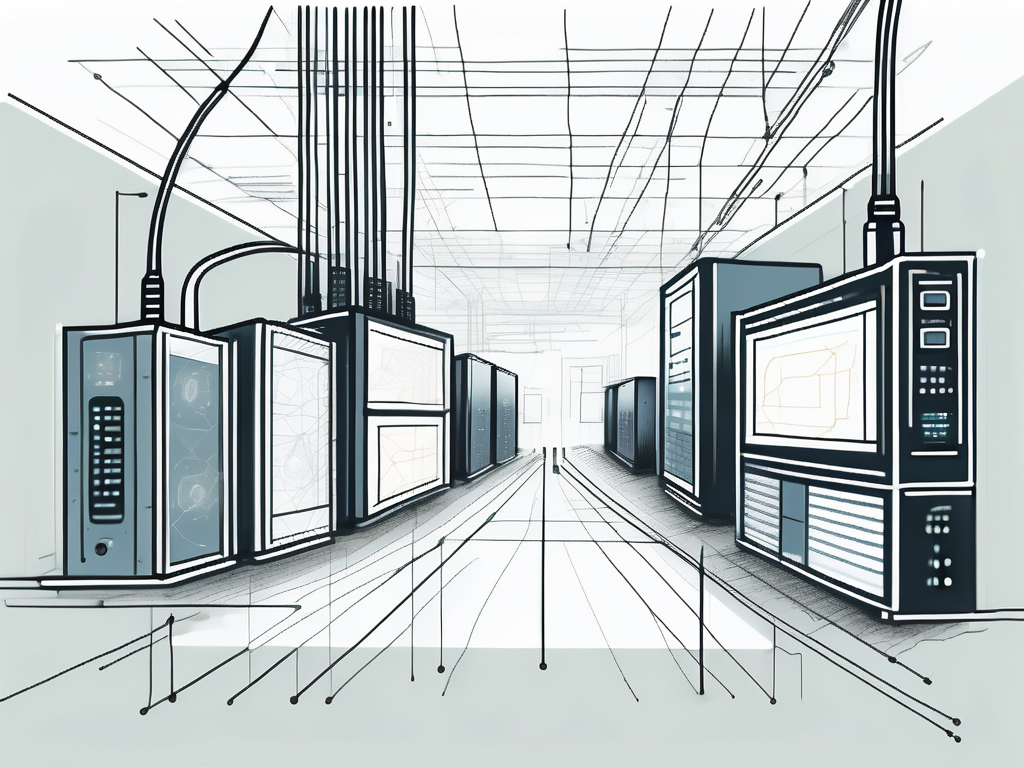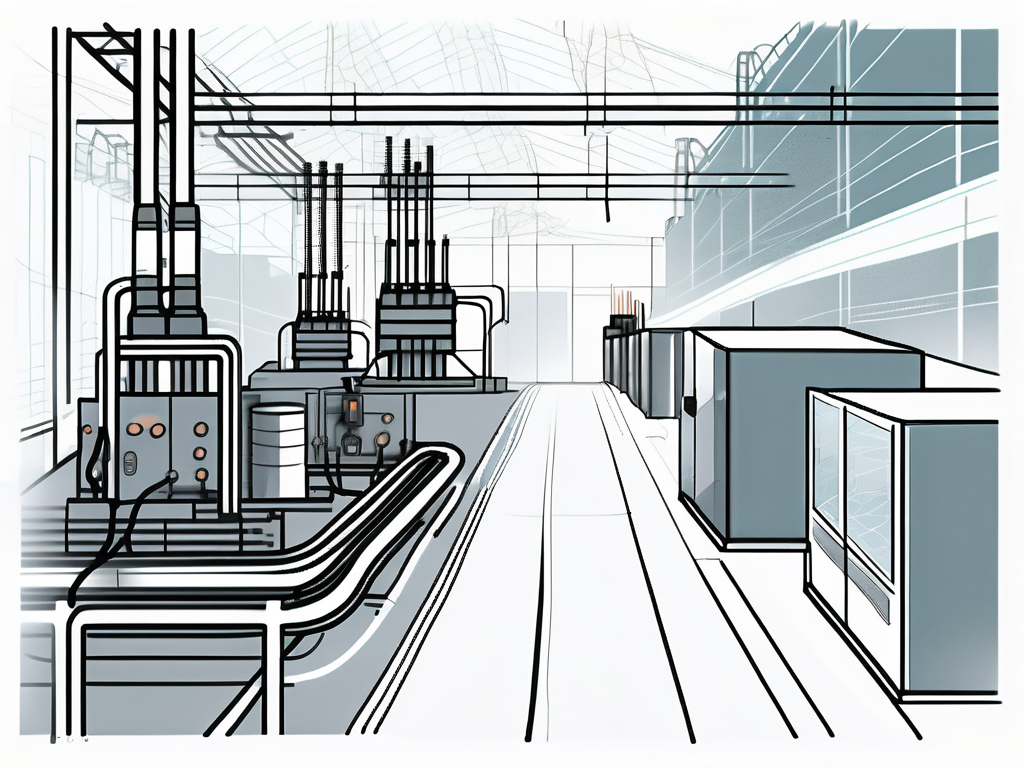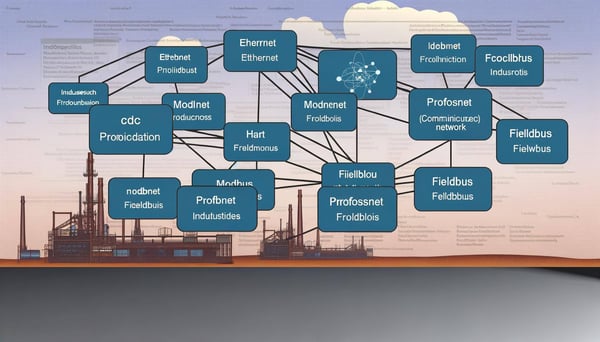
Fundamentals of FOUNDATION fieldbus
In the world of industrial automation, communication protocols play a pivotal role in ensuring seamless interaction between devices and systems. One such protocol that has gained significant traction over the years is the FOUNDATION fieldbus. This digital, bi-directional communications protocol is designed to interconnect field devices and systems in the process industry, offering a robust and efficient solution for data exchange.
Understanding FOUNDATION fieldbus
The FOUNDATION fieldbus is an all-digital, serial, two-way communication system that serves as a local area network (LAN) for industrial instrumentation and control devices. It was developed by the Fieldbus Foundation, now part of FieldComm Group, with the aim of providing a standardized protocol for process automation.

Unlike traditional point-to-point communication systems, FOUNDATION fieldbus uses a multi-drop configuration, allowing multiple devices to communicate on the same network. This not only reduces the amount of wiring required but also enhances the overall reliability and efficiency of the system.
Key Features of FOUNDATION fieldbus
FOUNDATION fieldbus is renowned for its advanced features that offer numerous benefits for process automation. One of the key features is its support for Device Description (DD) and Capability Files (CF), which provide detailed information about the device and its functions. This allows for easy integration and interoperability of devices from different manufacturers.
Another notable feature is the support for control in the field (CIF). This allows control loops to be executed in the field devices themselves, reducing the load on the control system and improving the overall performance. Furthermore, FOUNDATION fieldbus supports advanced diagnostics, enabling proactive maintenance and reducing downtime.
Implementing FOUNDATION fieldbus
Implementing FOUNDATION fieldbus in an industrial setting involves several steps, starting with the design of the fieldbus network. This includes determining the number of devices, the layout of the network, and the type of cable to be used. The next step is the installation of the fieldbus devices and the network infrastructure, followed by the configuration and commissioning of the system.

One of the key considerations when implementing FOUNDATION fieldbus is the selection of devices. It is important to choose devices that are certified by the FieldComm Group to ensure compatibility and interoperability. Additionally, the devices should support the required Function Blocks and Device Descriptions to facilitate easy integration and configuration.
Challenges and Solutions
While FOUNDATION fieldbus offers numerous benefits, it also presents certain challenges. One of the main challenges is the complexity of the technology, which can make the implementation and troubleshooting process difficult. However, this can be mitigated by proper training and the use of advanced diagnostic tools.
Another challenge is the initial cost of implementation, which can be higher than traditional systems due to the cost of fieldbus devices and infrastructure. However, the long-term benefits such as reduced wiring, improved efficiency, and lower maintenance costs can offset the initial investment.
Future of FOUNDATION fieldbus
The future of FOUNDATION fieldbus looks promising with continuous advancements in technology. The introduction of Fieldbus Foundation's High Speed Ethernet (HSE) offers a faster, more efficient communication protocol for process automation. HSE is designed to support complex applications and large amounts of data, making it an ideal solution for industrial Internet of Things (IoT) applications.
Furthermore, the integration of FOUNDATION fieldbus with other technologies such as wireless communication and cloud computing opens up new possibilities for remote monitoring and control, predictive maintenance, and data analytics. This not only enhances the functionality of the fieldbus system but also paves the way for Industry 4.0.
Conclusion
In conclusion, FOUNDATION fieldbus is a powerful communication protocol that offers numerous benefits for process automation. Its advanced features, coupled with continuous technological advancements, make it a viable solution for modern industrial applications. While the implementation of FOUNDATION fieldbus may present certain challenges, the long-term benefits make it a worthwhile investment.
As the industry moves towards digitalization and Industry 4.0, FOUNDATION fieldbus will continue to play a crucial role in facilitating efficient and reliable communication between devices and systems. Therefore, understanding the fundamentals of FOUNDATION fieldbus is essential for anyone involved in the field of industrial automation.



